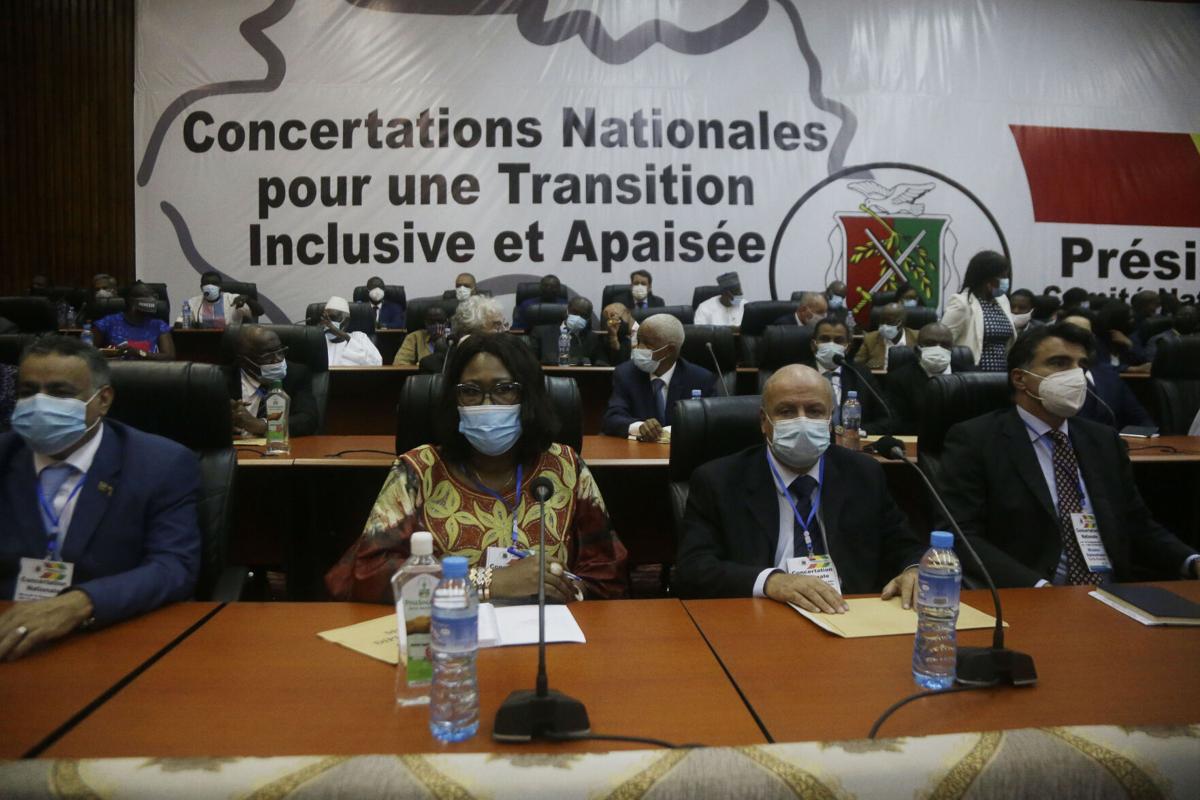West African leaders have decided to impose travel bans and freeze the financial assets of members of Guinea’s ruling junta and their families after a coup more than a week ago.
The decisions were announced Thursday after an Extraordinary Summit on Guinea in Ghana’s capital, Accra. Mediators with the regional group had traveled to Guinea to meet with junta leaders and check on the condition of deposed President Alpha Conde.
ECOWAS president Jean Claude Brou said the West African leaders have also insisted that there should be no “need for very long transition for the country to return to democratic order.”
The targeted sanctions come after Guinea’s coup leaders set a number of conditions for releasing Conde, according to the foreign minister of Ghana.
ECOWAS had already warned it will impose penalties on the junta in Guinea unless it immediately releases Conde, who has been held at an undisclosed location since being detained during the Sept. 5 coup in Conakry.
“We are coming to address a burning issue in the region,” said Ghana’s President Nana Addo Dankwa Akufo-Addo, the current chair of the regional bloc, ahead of the summit. He was joined by presidents or high-ranking officials from eight of the other 15 ECOWAS countries.
Members of the ECOWAS delegation that visited Conakry after the coup presented their reports at Thursday’s meeting, said Ghanaian Foreign Minister Shirley Ayorkor Botchway. The junta has set a number of conditions for complying with the demands of regional mediators, she said but declined to disclose what they are.
The delegation has spoken with Conde’s doctor “who ascertained that indeed physically, he’s very well,” she said. However, she said, the ex-president is still coming to terms with the fact that his government has been toppled after more than a decade in power.
“For anybody who has gone through such a traumatic experience like he did, mentally, it’s not the best, not to say that mentally we found anything wrong, but he was quite shocked; he’s still in a state of shock,” she added.
Meanwhile, in Conakry, junta leaders were also set to meet with mining company representatives on the third day of a special summit to chart Guinea’s political future. Junta leader Col. Mamady Doumbouya has sought to reassure the country’s most vital economic sector that the political changes will not impact existing mining projects in the country, which has the world’s largest reserves of bauxite.
Guinea’s coup leaders have yet to make public their proposed timeframe for handing over power to a civilian transitional government, nor have they outlined how quickly new elections can be organized.
Conde had sparked violent street demonstrations last year after he pushed for a constitutional referendum that he used to justify running for a third term, saying term limits no longer applied to him. He ultimately won another five years in office last October, only to be toppled by the coup 10 months later.
At the time he came to power in 2010, he was Guinea’s first democratically elected leader since independence from France in 1958.
The regional bloc also planned to tackle concerns over whether a second member state, Mali, is making enough progress toward a return to democracy more than a year after a military takeover there.
In Mali, the ruling junta led by Col. Assimi Goita has committed to holding new elections by February 2022, though mediators who recently visited have expressed concern about whether that deadline now can be met.
Goita overthrew Mali’s president in August 2020 and then agreed to a civilian transitional government and an 18-month timeframe for holding a vote. However, only nine months after the first coup he effectively staged a second one, firing the civilian interim leaders and ultimately naming himself as president of the transition.
ECOWAS has not reinstated Mali’s membership in the bloc, marking the first time since 2012 that two of the 15 member states are suspended concurrently.
ECOWAS President Brou said there was the need to revisit the organization’s 2001 protocol on good governance “because a lot of things have changed or improved.”


 Forex3 weeks ago
Forex3 weeks ago
 Naira3 weeks ago
Naira3 weeks ago
 Billionaire Watch3 weeks ago
Billionaire Watch3 weeks ago



 Naira3 weeks ago
Naira3 weeks ago






 Naira2 weeks ago
Naira2 weeks ago




 Naira2 weeks ago
Naira2 weeks ago




 Naira4 weeks ago
Naira4 weeks ago






 Naira1 week ago
Naira1 week ago











